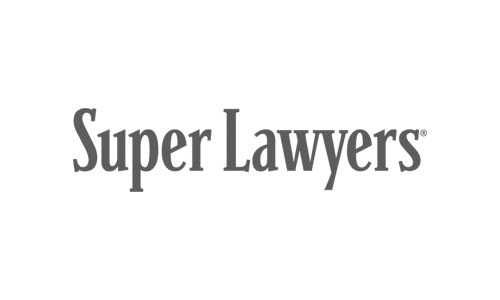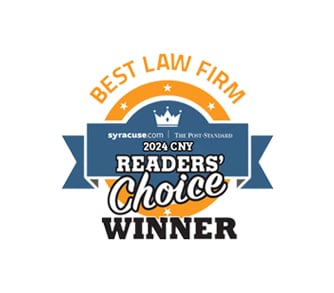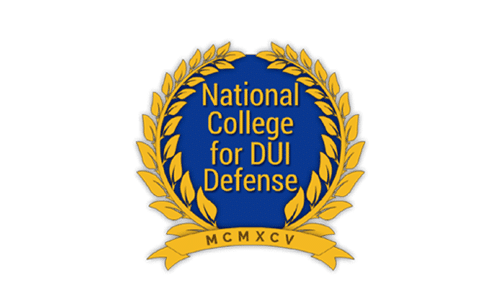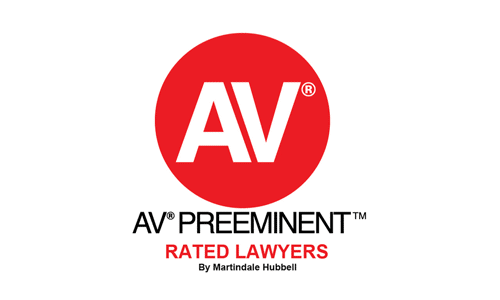Nave News
What are the Potential Defenses to DWI?
Individuals charged with a DWI in New York State face up to 364 days in jail, three (3) years’ probation, six (6) month revocation of their driver’s license, mandatory installation of an ignition interlock device in any vehicle they own or operate, mandatory completion of the Impaired Driver Program through the New York State Department of Motor Vehicles, mandatory attendance at a Victim Impact Panel, and a maximum fine and surcharge owed to the Court of $1,400.
Understandably, then, an individual charged with DWI, and their attorney, will seek to utilize any defenses they have at their disposal in order to limit, or perhaps even eliminate, the consequences the individual is facing as a result of their charges. There are several different areas where your attorney may seek to raise a defense to the charges against you.
The Traffic Stop:
Your attorney may first seek to challenge whether the arresting officer had reasonable suspicion to conduct a traffic stop in the first place.
The Supreme Court of the United States held, in Whren v. United States, 517 U.S. 806 (1996), that “the decision to stop an automobile is reasonable where the police have probable cause to believe that a traffic violation has occurred.” Subsequently, the New York State Court of Appeals affirmed this holding in People v. Robinson, 97 N.Y.2d 341 (2001).
As a result, if your attorney can show that there was no probable cause for the arresting officer to believe that any traffic violation occurred, your attorney may be able to make a motion to have the results of that traffic stop (namely, the evidence derived from the traffic stop) suppressed.
The Arrest:
Your attorney might also seek to challenge whether the arresting officer had probable cause to arrest you for DWI.
For purposes of probable cause, an arresting officer must be able to provide sufficient factual circumstances that lead them to believe that the person they are arresting has committed a crime.
With respect to DWI, an arresting officer typically relies upon his observations of clues and indicia of intoxication in determining whether to make an arrest. These include the odor of an alcohol beverage emanating from an individual’s breath, whether the individual exhibits bloodshot or watery eyes, any statements the individual makes, whether the individual successfully completes standardized field sobriety tests, and whether the individual provides a breath sample for the portable breath test (PBT) machine at the scene.
For standardized field sobriety tests, there are clear guidelines regarding how these tests must be performed. If the arresting officer does not appropriately follow such requirements, the tests may have been conducted improperly, and probable cause to arrest may vanish.
Further, law enforcement must show that the machines used to determine an individual’s blood alcohol content are in working order and have been recently calibrated for accuracy. If law enforcement cannot show the required maintenance of their machines, the determination of an individual’s blood alcohol content may be suppressed.
In any event, if the arresting officer cannot show sufficient factual circumstances available to them, which lead them to believe that the person they are arresting has committed a crime, the arrest may be deemed unconstitutional, and any evidence derived from it may be suppressed.
Post-Arrest Policies and Procedures:
Following an arrest, law enforcement must provide Miranda warnings to an individual subjected to “custodial interrogation.” In other words, pursuant to the landmark case decided by the Supreme Court of the United States in Miranda v. Arizona, 384 U.S. 436 (1966), an individual who is in custody and who is being interrogated by law enforcement must first be advised of certain constitutional rights and protections afforded to them.
Typically, the Miranda warning offered by law enforcement is standardized. It must, however, include notice to the individual of their right to remain silent, and of their right to have an attorney present during all questioning, even if unable to afford one.
In the event that law enforcement fails to provide an adequate Miranda warning, and incriminating statements are later obtained by police as a result of custodial interrogation, your attorney may seek to have such statements suppressed, meaning they cannot be used against you at trial.
Legal Requirements:
In New York State, a DWI charge has four (4) main elements. Namely, they are:
- Operation
- Of a motor vehicle
- On a public highway in the State of New York
- While in an intoxicated condition.
The prosecution must prove all four elements of DWI, beyond a reasonable doubt, in order to convict. In the event that any of the four elements of DWI are missing, or the prosecution cannot prove any element beyond a reasonable doubt, the prosecution will be unable to convict for DWI.
Procedural Requirements:
Lastly, there are certain procedural requirements that must be followed while your case is before the Court. For example, the prosecution has certain discovery obligations which must be met, and the case must proceed in a timely fashion to satisfy the speedy trial guarantees of the 6th< Amendment.
If any such procedural requirements are not followed, your attorney can seek to have remedies imposed against the prosecution by the Court, including dismissal of all charges.
Summary:
In sum, there are multiple avenues from which your attorney can challenge the charges you are facing, including those outlined above. The multitude of defenses available is why hiring an experienced attorney handling DWI and DWAI cases is so important. An experienced attorney will be able to pursue the avenues best suited to your case and obtain the best result possible.
Talents working together with a collective energy to help solve every day people problems.
Nave Law Firm is a team of skilled attorneys, paralegals, legal assistants, and advocates dedicated to providing clients with a high-caliber, legal representation to achieve successful results. At Nave Law Firm, We understand that every client’s situation is unique, so we never offer a one-size-fits-all solution. Sounds simple, but by focusing on solving everyday people problems, we’ve developed a reputation for compassion, honesty, and positive results that set us apart from the other firms.

sentation
Our honest, transparent approach to client representation helps us better protect our clients.
With more than 100 years of experience, we leverage our insight to benefit our clients.
We are dedicated to being a faithful and reliable support system for our clients.
what our clients are saying
The entire team at Nave Law is second to none. They are dedicated, hard working and responsive. During my experience I felt as if I was their only client. Communication was exceptional as well as the dedication and attention to my case. Thank you all for everything!
Honest great lawyer, and very empathetic and reasonable. Their Willingness to work with you and help is amazing. Would highly recommend. Not one of those slimy lawyers that milk every dime they can out of you. One of the good ones.
It’s hard to see the “light” after you’re in such an awful position. It’s important to choose a team who will literally be by your side through it all. Working with this firm was the best decision I could have made.
Fast, honest and professional. I had court in 3 days and was about loose my license and Nave Law firm took care of everything and I didn’t even have to go to court. They were worth every penny and I will recommend them to everyone. Thank you again Nave law Firm!
Filled with hard-working employees and highly communicative about the information that they need from their clients, Nave Law Firm treats your matters with friendly manners and seriousness towards the situation. My case was handled with detail and I never felt as though I was being neglected.
















